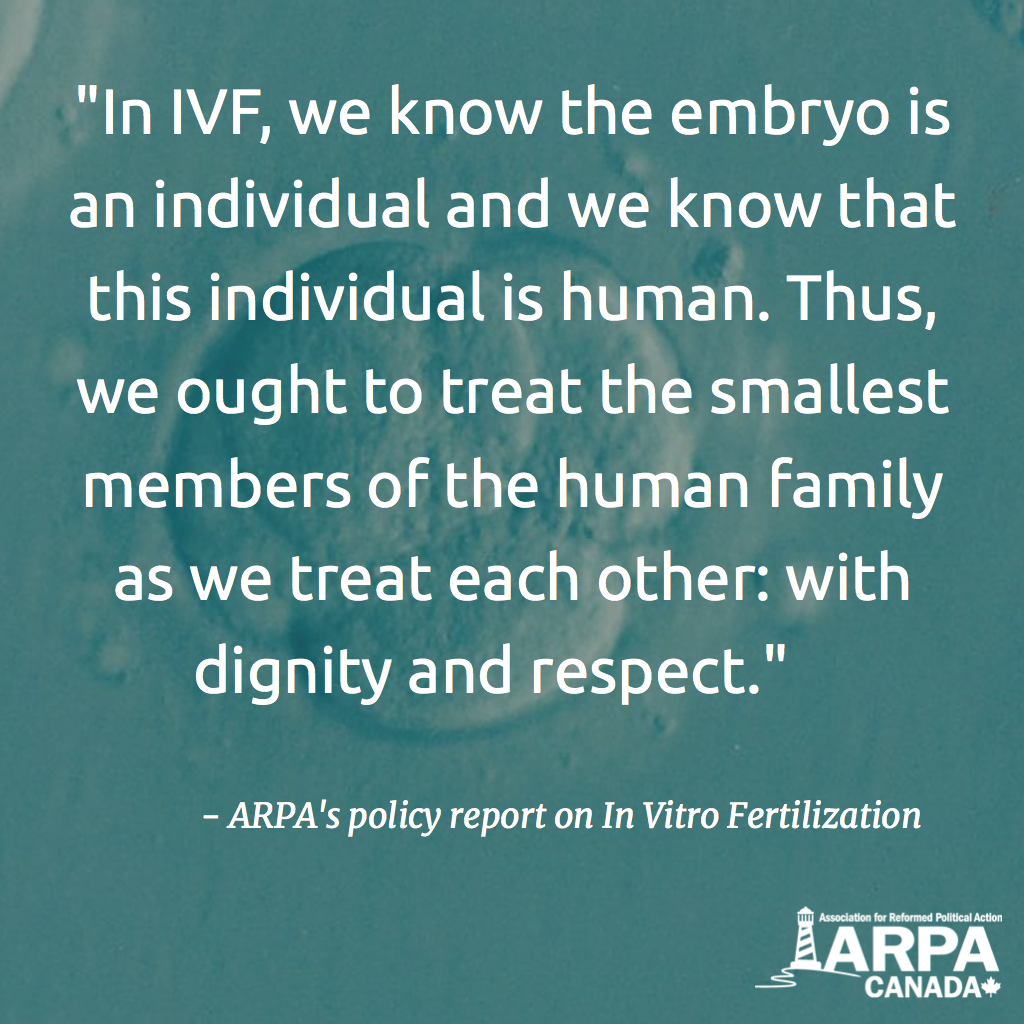Improving Canadian laws to promote the equality of in vitro embryos
Reproductive medicine has changed drastically in the past decades with the development of technology that allows for in vitro fertilization (IVF). IVF is the assisted fertilization of a human egg cell by a human sperm cell – thus creating a new human being – outside of the female body. Now more than ever there are more avenues to treat childlessness and to start a family. The medical assistance in the creation of human life involves serious questions of medical ethics, particularly in the way we treat life from its beginning. Canada’s law in this area has not kept up with scientific advances nor does it fully protect life and promote its sanctity.
 ARPA Canada’s policy report on the In Vitro Embryo includes an explanation of what IVF is and the often-ignored (and usually avoidable) costs associated with assisted human reproduction, including the intentional destruction of human embryos. The report also addresses the industry around IVF such as gamete donation or commodification and discrimination against those with disabilities through pre-implantation genetic diagnostics.
ARPA Canada’s policy report on the In Vitro Embryo includes an explanation of what IVF is and the often-ignored (and usually avoidable) costs associated with assisted human reproduction, including the intentional destruction of human embryos. The report also addresses the industry around IVF such as gamete donation or commodification and discrimination against those with disabilities through pre-implantation genetic diagnostics.
Parliament is tasked with the responsibility of protecting the weak, respecting human dignity, and mending the moral fabric of our nation. In order to assist them in fulfilling their mandate, we have included eight recommendations that can be implemented into Canadian law that will enhance assisted human reproduction in a way that fully respects the in vitro embryo as an equal member of the human family. Check it out here, and consider engaging your Member of Parliament on this issue.